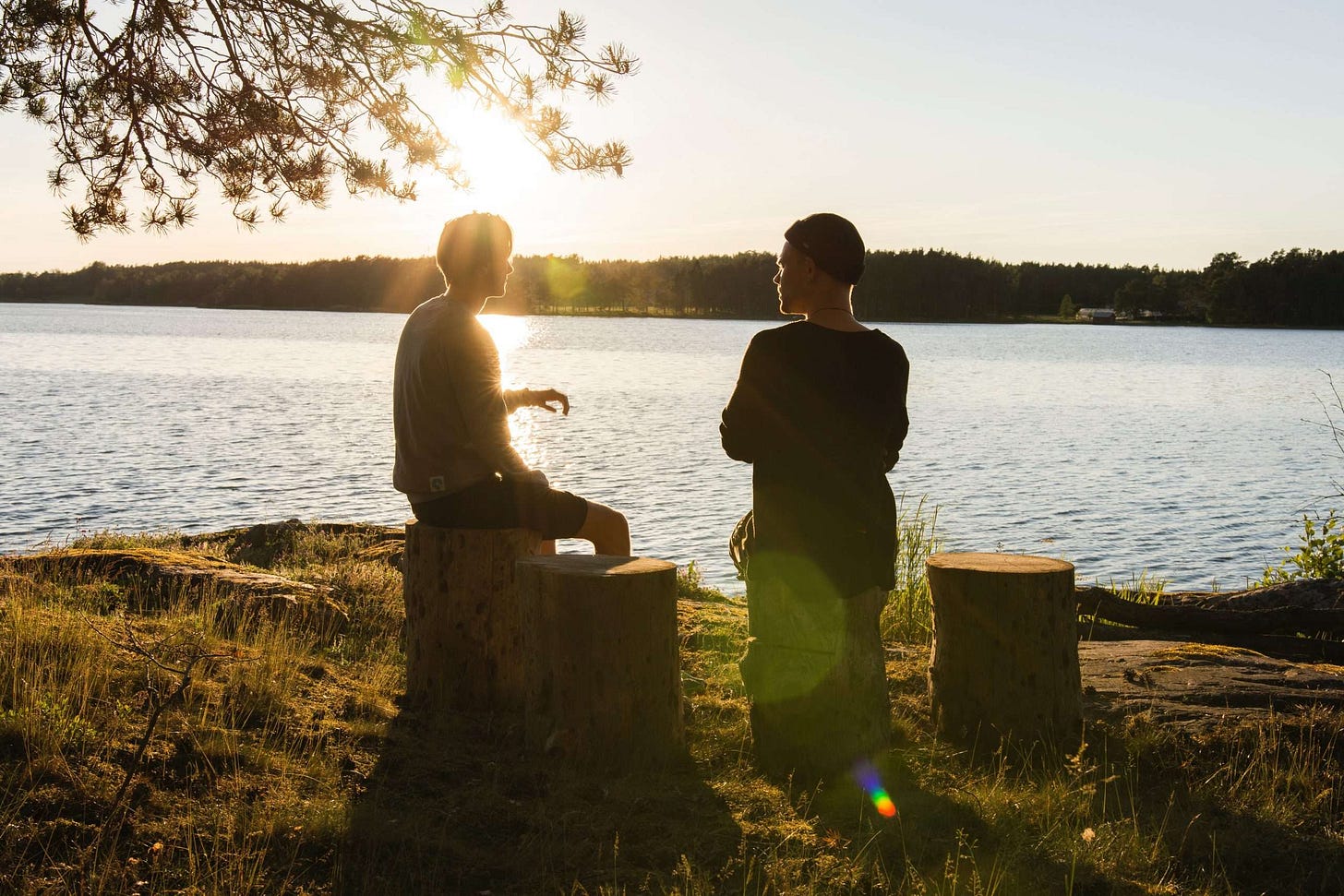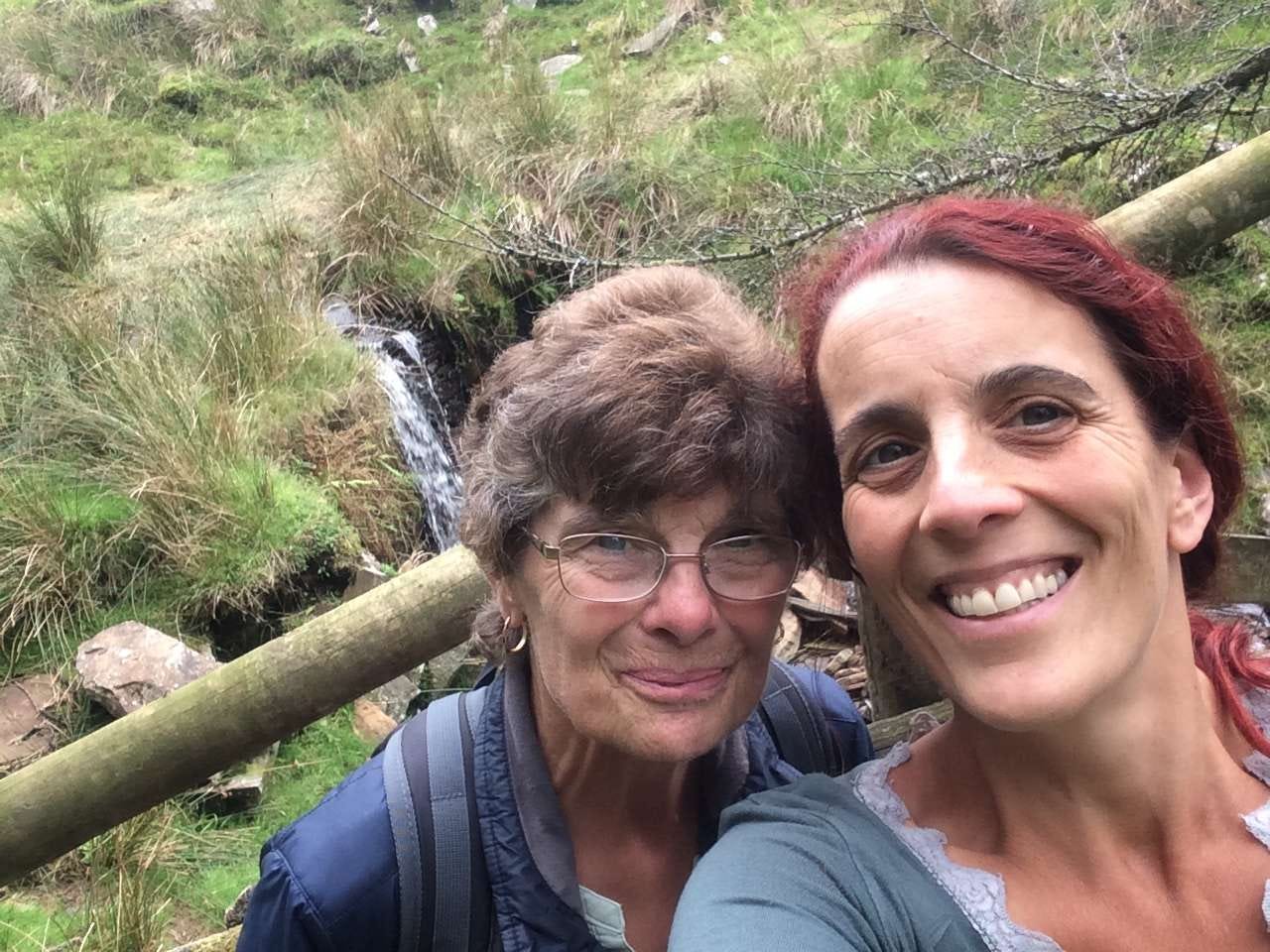Stressed and sober? How to calm your emotions without booze
“I’m not drinking today, I’m doing that Sober October thing, remember?”
“Esther, look at the state of you. You’ve had a shit of a day, one glass of wine won’t hurt, and it will help you relax a bit. You can have a cup of tea once you’re not so strung out”
Famous last words, eh? 3 days into my determined bid to stay sober through the whole of October 2013, and I was struggling. I had been at the family court, trying to resolve issues between me and my ex. It hadn’t worked, well, not from my perspective anyway. He’d done ok out of it I guess.
I’d come away feeling attacked.
Sitting in my best friend’s kitchen, in tears at the unfairness of the system, and the arrangement we’d come away with. I wanted to escape. I needed wine. I didn’t want it, but I knew I needed it. No cup of tea was going to calm me at that moment.
I didn’t put up much of a fight against the glass of wine she offered to me.
The rest of the bottle didn’t last long. And the one I bought on the way home was gone before I got to my bed.
The cup of tea never happened.
The myth of using booze to relax
I thought I was having fun….
2013 Esther had very few coping tools to help when life got hard. There was walking and Yoga. I relied heavily on those healthy practices. But when I felt that life was really threatening to crush me, there was only booze, cigarettes and weed.
What I didn’t know then was that alcohol was never relaxing me. Not in any real sense.
Yes, it was making me feel looser. It reduced my inhibitions. It created a sense of happiness that wasn’t there before I started drinking. It allowed me to laugh at silly things and forget my troubles (for a while). It numbed me from the pain and unhappiness I felt.
But it never helped. Not in any real sense. And it always made things worse, even when I couldn’t see it.
Alcohol mimics GABA, the neurotransmitter that promotes relaxation. So when you drink you do, for a while, FEEL more relaxed. But at the same time, it increases cortisol, the hormone responsible for the stress response. So while your brain thinks it is relaxing, the alcohol is actually increasing stress.
Over time, the excess cortisol can lead to more health problems, including weight gain and high blood pressure. It also increases anxiety. Causing more stress. Leading to more drinking. And so on…..
Managing emotions in Sobriety
One of the biggest hurdles of recovery is learning how to manage your emotions. Addiction is, in my experience, a coping strategy, a way to deal with hard things and a way to manage emotions. I could drop the booze once I had developed a good range of tools to help me deal with and soothe my emotions.
So what tools can you use to manage your emotions without needing to reach for that bottle?
Here are 5 of my top tools…
Talk it out
One of the worst things you can do with painful emotions is keep them locked away inside. Mind/body science tells us that the emotions profoundly impact physical health. That if left unresolved, they can lead to serious health complications.
Not only that, but keeping your emotions locked up inside you means that you have little chance of resolving the issues that are causing you so much pain.
Talking things through can help you
find solutions
ease feelings of shame and self blame
create connection, healing and emotional wellbeing.

Whether you talk to a trusted friend, a health professional, a sponsor or a recovery coach, allowing yourself to open up and share your worries can be deeply healing, allowing you to process and release emotions that can hurt you.
Writing for healing
If you don’t want to talk about your problems, or don’t have anyone you feel you can talk to, don’t despair! There is still a powerful tool you can use to process and soothe your emotions. I am doing it right now!
Writing can be a deeply healing practice, if you allow yourself to write freely and let your inner self express what needs to be written.
Sitting with a blank page and just letting the words flow from your pen, or your keyboard, can be a revelation. When I was doing the Yoga teacher training that led to my recovery, I did a lot of this sort of writing. I would often discover things I didn’t know I felt, or connections I had never made about different events in my life. I know that writing was a big part of my recovery, allowing me the space to heal much of the pain of my past that kept me drinking.
This works really well as a daily practice. Something like Julia Cameron’s Morning Pages provides a space where you can ‘dump’ the thoughts that midget stuck in your head, allowing you to let go of rumination, find patterns and repeating worries, and process the emotions that are keeping you stuck.
Or you can use writing as an occasional ‘friend’ to talk to when you need to resolve a certain problem. Make a cup of your favourite tea, grab your notebook, and start to write about the issues that are on your mind.
I firmly believe that we have the answers to almost all our problems already inside, and we just need a bit of help to get them out. Free writing and journaling can do that, and can become a fantastic tool for healing.
Take a breath
Your breath has so much to offer beyond the ‘basic’ function of keeping you alive. Your breath is intimately connected to your nervous system, and to your emotions.
When you get stressed or anxious, your breath becomes faster and more shallow. And when you are relaxed, your breath also becomes relaxed, slower and deeper.
But just as your breath responds to your emotions, so do your emotions respond to your breath. So if you consciously slow and deepen your breath, you create an instant relaxation in your body.
And when your body is relaxed, so is your mind. It is ALL connected.
The good news is that you can start right now.
Begin by noticing your breath. Make a point throughout the day to check in and see what is happening in your lungs. Notice how you are breathing. Notice if the breaths are long or short, shallow or deep. Are you breathing through your nose or your mouth? How do you breathe when you are happy? How do you breathe when you are stressed, sad, excited, angry etc?
The first step to changing anything is becoming aware of it. You can’t consciously change anything if you are not aware of it.
Make a point throughout your day, starting now, to check in with your breath. Reflect on how you feel about your breath, how it feels to stop and notice it. When you connect with your breath, you deepen your relationship with yourself. It really is a powerful, transformational relationship, and I cannot recommend it enough.
Nature heals
We have known since the days of Hippocrates and earlier that ‘Nature itself is the best physician’. I have learned this personally since I started walking in the hills in 2006, in the months following my brother’s death, and have turned to nature for mental and physical wellbeing countless times since.
We are part of the natural world, so it seems obvious that we could find healing and recovery by being in and with nature. Science has done a lot in recent years to prove the health giving benefits of time in nature, and we now know that, for example, a 90 minute walk in nature can reduce rumination, a pattern of focusing on often negative thoughts that is often associated with depression. Scientists have also discovered that being near trees allows us to benefit from their production of stress reducing phytoncides.
When you spend time in nature, whether that is in the natural countryside, a city park, a garden or in front of a few houseplants, you are able to tap into the benefits that connection to nature gives.
Whether you’re walking, gardening, playing with the kids, surfing, or just being, time spent in nature will soothe and relax your body and mind. Nature gives us a great sense of perspective and space, allowing you to find the solutions and connections that are already there for you to find.
I love to offer coaching in nature, as it seems to allow people to connect deeper to their intuition and wise self, as well as allowing deeper relaxation and better breathing.
How can you bring more connection with nature into your life?
Get into motion
I might have got sober in October 2014, but I always maintain that my recovery began in April 2006, when I shocked myself by thoroughly enjoying a hill walk with my Mum and son near my childhood home.
After 6 months of grieving together after the death of my brother, I wanted to do something different with Mum other than sit and drink tea and cry together. She loved walking in the hills, as had my brother.
So I asked her to take me for a walk. I was NOT a person who walked for pleasure. I ddin’t expect to enjoy the walk. But I knew it would make Mum happy.
I was wrong about the enjoyment.
My legs ached. My muscles burned. I struggled to breathe and speak at times. But when I realised how beautiful the world could be from the top of a mountain you’ve just walked up, I was hooked.
By the time we got back after eating our lunch at the beautiful view point at the top of our valley, I knew I would be doing it again. And I did.
Within weeks I had all the kit, and was planning regular walks with Mum. Over time, I started staying in and going to bed early on a Friday night so I could get up to go hiking with groups in Bannau Brecheiniog. There would always be a ‘well earned drink’ in the evening afterwards, but I was starting to find alternatives to drinking, and reasons to enjoy sobriety.
My evening prep for a day of hiking gave me more joy than an evening of drinking, giving me something I would enjoy, not regret, the following day.
Walking soon became one of my most turned to stress management tools. After difficult days in work, or when the grief threatened to overwhelm me, I would take to the hills and walk it out. I was still drinking heavily, but I was finding pockets of peace in a stress and grief ravaged life.
Walking regularly started to connect me with my body, which led me to exercise more, and eventually I started going to Yoga. In time, Yoga became the way I was able to fully embrace sobriety. It also allowed me to heal tensions that had always existed between my Mum and me. As we walked together often, we talked things out, and got to know one another as friends as well as mother and daughter.
And it all started with a Sunday afternoon walk, just for something different to do with Mum.
Walking has continued to be a source of soothing, support and healing for me. When my mother was ill and died last year, walking was my primary source of stress release. Even though I had worried I’d struggle to do it because I associated it so much with her. I often cry when I walk, thinking of her and her zest for life. But it always soothes and comforts me. Even the tears I cry when walking in nature feel calming and healing.
Any form of movement that gets your heart rate up is good. I love to walk, dance, run, paddleboard, surf, lift weights, climb and will have a try of most other things. When you get those exercise endorphins racing through your body, you remember how much joy you can have when you treat your body well.
Care must be taken not to switch the booze addiction for exercise of course, but if you find a way to move your body that you enjoy, it can change your life! It certainly did for me.
Recovery your Way
These are a few things that have worked, and contine to work, for me in my recovery. They now form a vital part of my recovery capital, and have helped me get through bereavement, heart break, financial and work stress, family court hearings and co-parenting challenges, Donald Trump and Boris Johnson, a global pandemic and so much more.
Many of the tools I use in my own recovery have been shown by research to help with mental health, but that doesn’t mean that they will work for everyone. If you’re struggling and are looking for support to help you find your own recovery capital, I am here for you. Get in touch if you would like to explore if recovery coaching could help you. I believe in you and your ability to create the life you deserve. And I would be honoured to help you on that journey
Return to Your Trees is a reader supported publication that shares insights and inspirations about recovery, nature connection and mental health.
Free subscribers can access all my articles and comments, but paid readers can also receive
monthly meditations and guided nature connection practices
weekly voice notes with inspiration and insights into recovery and nature connection
a 15% discount on my online and in person events (Yoga and meditation classes, workshops, retreats etc)
access to 4 annual online retreats, taking place on the Winter and summer equinoxes and solstices. These will be delivered live on zoom, and will include a mixture of meditation, yoga, nature connection and self exploration through writing prompts.
Founding members will receive all the above, and will also be invited to join me for a monthly book club, where we will explore writing about recovery, nature, discovery and more.
Find out more here, or subscribe below.







